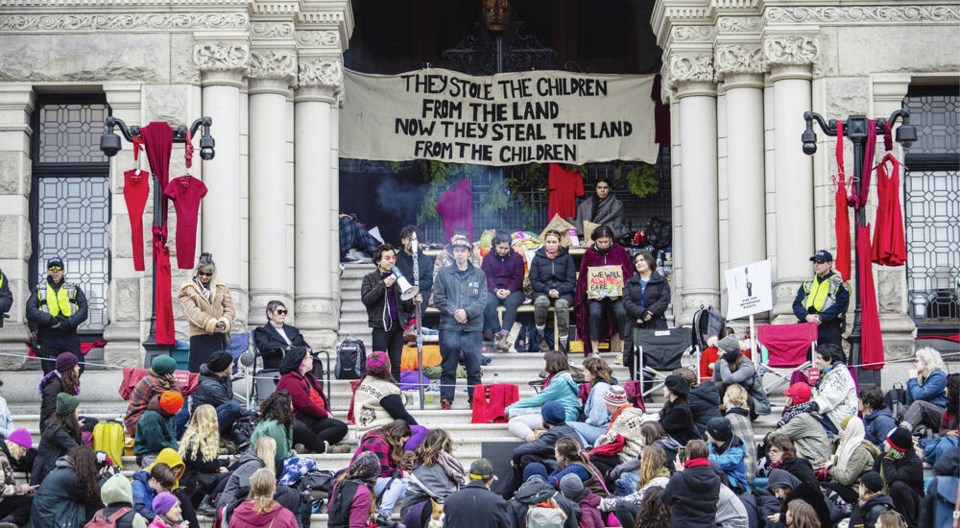More than 25 years ago, a decision was not made, and our province is still struggling from it.
Delgamuukw, a foundational legal case of our post- constitution society, acknowledged that Aboriginal title exists, but it did not grant it.
Technically there were many decisions in the Delgamuukw litigation; from the B.C. Supreme Court on up until the Supreme Court of Canada addressed the matter in 1997.
But they didn’t really settle the heart of it. They did not say who owned the land.
The Supreme Court of Canada issued a ruling on a narrow procedural issue. The wrong plaintiff was named. Instead of the 50 Gitksan and Wet’suwet’en ‘houses’ as the plaintiff, the Court said they should have named the Gitksan and Wet’suwet’en Nations.
It remains “unknown” whether the Wet’suwet’en and Gitsxan have Aboriginal title to their territory in northern B.C. The file has moved little for years. And we are all suffering because of it.
It is in the public interest to have an answer. There is great value in certainty.
Not knowing who owns what in the Skeena, Nass, and Bulkley watersheds impedes government, the environment and business. It means no one knows who to consult with to fulfil their constitutional duties, and leaves loopholes through which the unscrupulous can take advantage of our environment and our people.
This exposes investment to great risk, as we’ve seen in project after project in our province. It hinders our development.
It has been said that “Claims to Aboriginal title are woven with history, legend, politics and moral obligations.” Not having an answer to the question of Aboriginal title is a burden on our aims of reconciliation.
The story of colonization has become a central narrative in our society. Part of that narrative is the taking of lands and resources. Elsewhere in Canada, our government signed treaties to extinguish the aboriginal interest in land, because by law they had to.
Our government, acting honourably, could not just take the land. They had to buy it, or declare war. A peaceful nation, our government decided to buy the land.
Except in B.C., where they didn’t. And here we find ourselves, hundreds of years later, uncertain about who owns what.
Not having an answer has led to violence. There have been numerous confrontations in Wet’suwet’en country over the Coastal Gaslink pipeline. People have been hurt, equipment has been destroyed and police have had to intervene. If a decision had been rendered more than 20 years ago, that might not be the case.
Earl Muldoe, a holder of the Delgamuukw title and named plaintiff in the Delgamuukw case, died in January. A leader in the fight for recognition of Indigenous rights, he lived to see the first declaration of Aboriginal title for the Tsilhqot’in in 2007.
Tsilhqot’in was a watershed moment. It was a decision on the facts that acknowledged an historic reality: “When Europeans arrived in North America, [A]boriginal peoples were already here, living in communities on the land, and participating in distinctive cultures, as they had done for centuries.”
Other lawsuits over Aboriginal title are before the Courts. The Cowichan and Nuchatlaht cases have nearly concluded, and it is in the public interest that a decision is made.
Even if Earl Muldoe is not around to see it.


